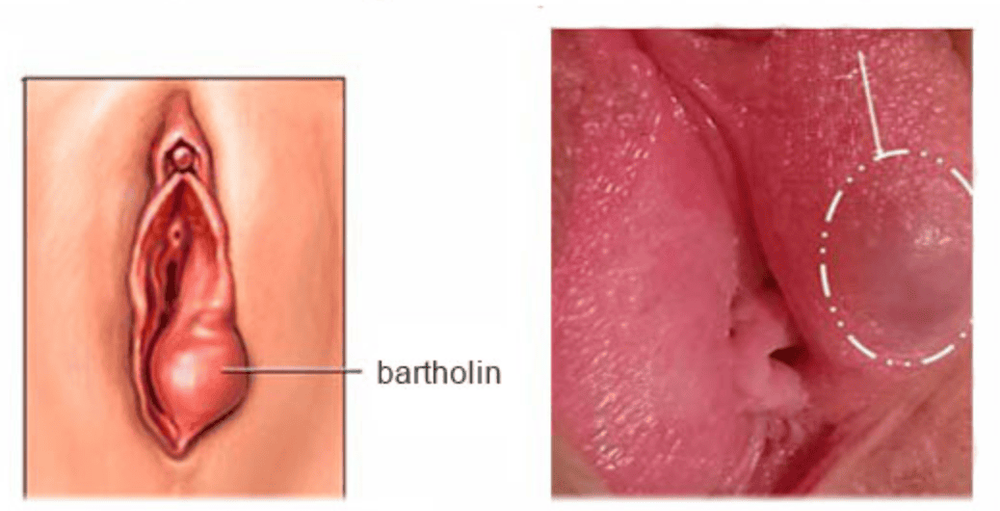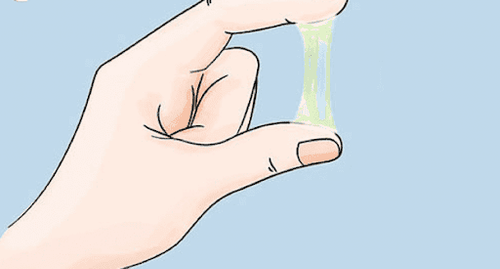This article was professionally consulted by Dr. Phan Diễm Doãn Ngọc from the Department of Obstetrics and Gynecology at Vinmec Central Park International General Hospital.
Bartholin's gland cysts are a common gynecological condition in women of reproductive age. Whether a Bartholin's gland cyst is dangerous depends on its size, the level of pain, and its infection status. Additionally, recurrence potential and differential diagnosis should be considered for an appropriate management plan.
1. What is a Bartholin's cyst?
Bartholin's gland cysts or Bartholin's gland inflammation refer to cystic lesions of the Bartholin's glands, which are located on either side of the vulva (the external area of the vagina). The primary function of these glands is to secrete fluid into the labia majora to maintain moisture and provide lubrication during intercourse.
Sometimes, blockage of the ducts can cause fluid to back up into the gland, leading to the formation of a thin, swollen, and painless cyst known as a Bartholin's gland cyst. If the fluid inside the cyst is infected, it may result in an abscess, characterized by pus surrounded by inflamed tissue.
Bartholin's gland cysts and abscesses are relatively common conditions. Bartholin's gland cysts are potentially dangerous, regardless of their size, pain level, or presence of infection. These factors also guide physicians in selecting the appropriate treatment plan after a proper diagnosis.
In some cases, patients may only require at-home treatment under the guidance of the doctor. However, for more severe cases, the doctor may recommend surgical drainage of the Bartholin's gland cyst. If an infection is present, treatment may include using antibiotics.
2. Is Bartholin's gland cyst dangerous?
If you have a small, uninfected Bartholin's gland cyst, you may not notice any symptoms. If the cyst progresses, a lump may develop near the vaginal opening. Most Bartholin's gland cysts are painless. Whether a Bartholin's cyst is dangerous depends on its size, level of pain, and whether it is infected. Additionally, recurrence potential and differential diagnosis should be considered for an appropriate management plan.
In some cases, an infected Bartholin's cyst may develop within a few days. If infected, patients may experience the following symptoms:
- A painful lump near the vaginal opening.
- Discomfort while walking or sitting.
- Pain during intercourse.
- Fever.
Bartholin's cysts or abscesses typically appear on one side of the vulva.
Patients should see a doctor if a painful lump near the vaginal opening does not improve after 2 to 3 days of self-care, such as soaking in warm water. If you detect a lump near the vaginal area and are over 40 years old, it is important to consult a doctor. Although rare, such lumps could indicate serious conditions, such as cancer. If the pain becomes more severe, see a doctor as soon as possible.

3. What causes Bartholin’s gland cysts?
Bartholin's gland cysts are caused by a blockage of vaginal secretions. Fluid can accumulate when the duct is obstructed due to infection or trauma.
Bartholin's gland cysts may lead to infection and the formation of an abscess. Certain bacteria are responsible for the infections, particularly Escherichia coli and sexually transmitted infection, such as bacterias responsible for gonorrhea and chlamydia.
4. Diagnosis of Bartholin's Gland Cysts
To diagnose Bartholin's gland cysts, a doctor may:
- Ask the patient’s medical history.
- Perform a gynecological examination.
- Collect samples of vaginal or cervical secretions to test for sexually transmitted infections
It is Recommended a biopsy to screen for cancerous cells if the patient is postmenopausal or over 40 years old.
5. Treatment of Bartholin's Gland Cysts
Usually, Bartholin's gland cysts do not require treatment, especially if the cyst is asymptomatic. If necessary, treatment depends on the cyst’s size, involvement, and infection status (e.g., abscess formation).
Treatment options for Bartholin's gland cysts include:
- Warm Baths: Soaking in warm water several times a day for three to four days may help small infected cysts rupture and resolve on their own.
- Surgical Drainage: Surgery may be needed for large or infected cysts. Under anesthesia or local pain relief. The doctor makes a small incision in the cyst to drain the fluid, followed by inserting a small rubber tube (catheter) to keep the incision open. The catheter is typically left in place for up to six weeks to ensure complete drainage.
- Antibiotics: Antibiotics may be prescribed if the cyst is infected or if testing confirms an STI. However, properly drained abscesses may not require antibiotics.
- Catheter Placement: For recurrent cysts or cases significantly impacting quality of life, surgical excision may be recommended. The doctor creates a fixed 6mm opening to allow drainage of Bartholin's gland cyst fluid. A catheter is inserted for several days post-surgery to facilitate drainage and prevent recurrence.

In rare cases, If persistent Bartholin's gland cysts do not improve with the aforementioned treatments, a doctor may recommend surgical removal of the affected Bartholin's gland. This procedure is typically performed in a hospital operating room under general anesthesia. Surgical removal of the Bartholin's gland carries a higher risk of bleeding and other complications compared to conventional treatment methods.
6. Home Remedies for Bartholin's Gland Cysts
Patients can manage Bartholin's gland cysts by taking warm baths daily to reduce the risk of infection or abscess formation.
After surgery for an infected cyst or abscess, soaking in warm water is particularly effective. This method helps keep the vulvar region clean, reduces discomfort, and promotes effective drainage of fluid from the cyst. Pain relievers may be necessary if the patient cannot manage the pain.
Currently, there is no known way to prevent Bartholin's gland cysts. However, women can reduce their risk by practicing safe sex, using protective measures (e.g., condoms), and maintaining good cleaning. These measures can help prevent cyst infection and abscess formation.
To help patients detect and treat gynecological conditions early, Vinmec International General Hospital offers a Basic Gynecological Screening and Examination Package. This package helps identify infectious diseases early, supports treatment, and minimizes costs. It also screens for early-stage gynecological cancers, such as cervical cancer, even before symptoms appear.
The basic gynecological screening package is available for all women, regardless of age, and is especially recommended for those with the following symptoms or risk factors:
Abnormal vaginal bleeding, menstrual problems: Irregular or unpredictable cycles
Abnormal vaginal discharge (Changes in odor or color)
Pain or itching in the vaginal area
Some women has some risk factors such as: Poor personal hygiene, unsafe sexual practices, or abortion
Female patients have other symptoms: Vaginal discomfort, unusual discharge, or unexplained vaginal bleeding
To arrange an appointment, please call HOTLINE or make your reservation directly HERE. You may also download the MyVinmec app to schedule appointments faster and manage your reservations more conveniently.
References: mayoclinic.org













